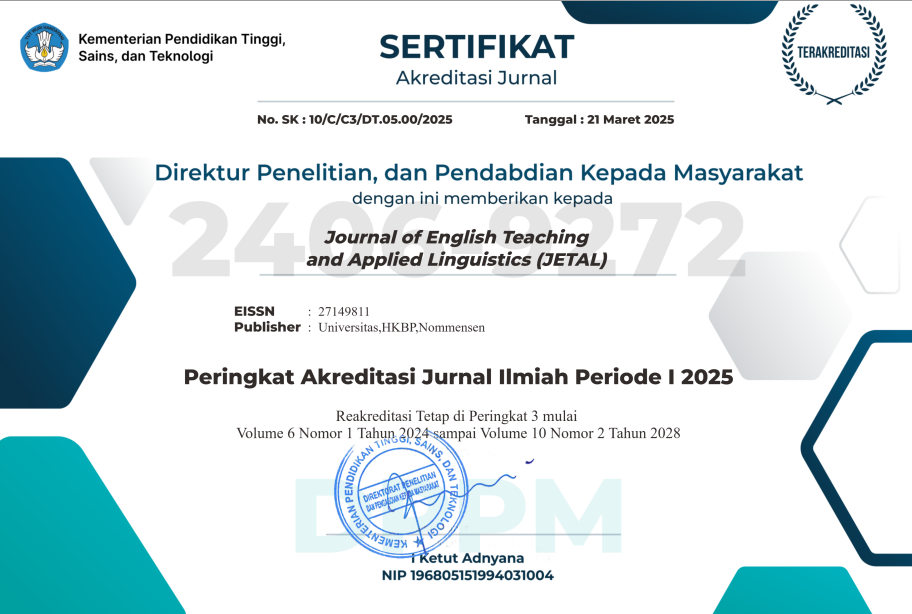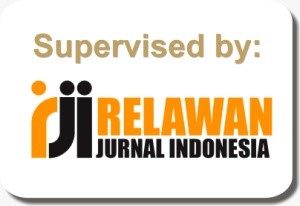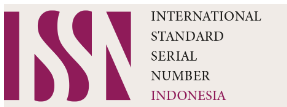UNCOVERING THE LINK BETWEEN STUDENTS’ ATTITUDE TOWARD READING AND THEIR COMPREHENSION ABILITIES
Abstract
Reading attitude gives good influence to reading comprehension achievement. This study sought to establish a non-experimental research design and employed a correlational research method. Instruments used in this research were a questionnaire to assess reading attitude and a multiple-choice reading comprehension test. The research population consisted of 426 students. The researchers took 105 students as the sample using a random sampling technique. By using Pearson Product-Moment on SPSS in analyzing the data, the researchers found that the sig-t was 0.114, higher than the significant alpha of 0.05 (sig.t > 0.05). It demonstrates that Ho1 is accepted, or that there is a significant negative correlation between the students' reading attitude and reading comprehension. The researchers also discovered that reading attitude has little impact on the 1.5% reading comprehension achievement at SMA Muhammadiyah 1 Palembang. The remaining 98.5 percent was influenced by various factors. Since students' reading attitudes have a minimal impact on their reading comprehension achievement, educators should explore other influential factors, such as teaching methods, vocabulary knowledge, and critical thinking skills. Future research should consider additional factors, such as cognitive abilities, language proficiency, and learning environments, to gain a more comprehensive understanding of reading comprehension influences.
References
Arikunto, S. (2017). Pengembangan instrumen penelitian dan penilaian program. Yogyakarta: Pustaka Pelajar, 53.
Bastug, M. (2014). The structural relationship of reading attitude, reading comprehension and academic achievement. International Journal of Social Sciences and Education, 4(4), 931–946.
Braden, M. J. (2012). Impacting attitudes towards reading in the second grade classroom: a reading role model intervention. Wichita State University, College of Education, Department of Curriculum and ….
Clark, C., & Rumbold, K. (2006). Reading for Pleasure: A Research Overview. National Literacy Trust.
Conradi, K., Jang, B. G., Bryant, C., Craft, A., & McKenna, M. C. (2013). Measuring Adolescents’ Attitudes Toward Reading A: Classroom Survey. Journal of Adolescent & Adult Literacy, 56(7).
Creswell, J. W. (2012). Educational Research: Planning, Conducting, and Evaluating Quantitative and Qualitative Research. Pearson.
Cunningham, D. D. (2008). Literacy Environment Quality in Preschool and Children’s Attitudes Toward Reading and Writing. Literacy Teaching and Learning, 12(2), 19–36.
Donaldson, N. M. (2010). The fourth grade slump: The relationship between reading attitudes and frequency of reading. Bowling Green State University.
Gregory, R. J. (2004). Psychological testing: History, principles, and applications. Pearson Education India.
Hanani, F. (2018). The Correlation Between Students’reading Attitude And Their Writing Ability At The Second Year Of Islamic Senior High School Al-Ma’arif Mantiasa Meranti Regency. Universitas Islam Negeri Sultan Syarif Kasim Riau.
Indrawati, I., Marto, H., & Ngoyo, M. E. (2020). THE STUDENTSâ€TM ATTITUDE AND READING COMPREHENSION TOWARD ENGLISH ACHIEVEMENT. Jurnal Madako Education, 6(1).
Lane, H. B., & Hayes, L. F. (2015). Keeping the big picture in mind: Using a reading conceptual framework to guide teacher learning. Journal of Reading Education, 40(2), 19–26.
Mathewson, G. C. (1994). Model of attitude influence upon reading and learning to read.
Maulidasari, I., Tahrun, T., & Mulyadi, M. (2021). The correlation among language learning strategies, reading attitude, and reading achievement of the eleventh grade students in senior high schools. Journal of Educational and Learning Studies, 4(1), 13–19.
McKenna, M. C., Conradi, K., Lawrence, C., Jang, B. G., & Meyer, J. P. (2012). Reading attitudes of middle school students: Results of a US survey. Reading Research Quarterly, 47(3), 283–306.
Morgan, P. L., & Fuchs, D. (2007). Is there a bidirectional relationship between children’s reading skills and reading motivation? Exceptional Children, 73(2), 165–183.
Murtafi’ah, B., & Putro, N. H. P. S. (2020). Gender differences in santriâ€TM s reading attitude and motivation. EduLite: Journal of English Education, Literature and Culture, 5(2), 251–262.
Pamuji, A. (2015). The correlation among attitude, reading comprehension, and writing achievement of English education study program students of Sriwijaya University. Jurnal Adminika, 1(1).
Pramita, D. G., & Anam, S. (2019). Indonesian senior high school students reading attitude: In relation to comprehension and school setting. RETAIN: Journal of Research in English Language Teaching, 7(2).
Sadeghi, K. (2007). The key for successful reader-writer interaction: Factors affecting reading comprehension in L2 revisited. Asian EFL Journal, 9(3), 198–220.
Scholl, R. W. (2002). Attitudes and attitude change. Journal of Classification, 3, 1–35.
Septianingsi, P., & Atmanegara, Y. (2021). The Influence Of English Reading Attitude On Students’reading Comprehension. Didascein: Journal of English Education, 2(2), 116–124.
Smith, S. A., & Li, Z. (2022). Closing the enjoyment gap: heritage language maintenance motivation and reading attitudes among Chinese-American children. International Journal of Bilingual Education and Bilingualism, 25(3), 1070–1087.
Sugiyono, D. (2014). Metode penelitian pendidikan.
Tisa, F., Sofendi, S., & Eryansyah, E. (2021). Reading and its relationships among attitude, motivation, and comprehension achievement in upper secondary school students. JEES (Journal of English Educators Society), 6(1), 42–51.
Tullock-Rhody, R., & Alexander, J. E. (1980). A scale for assessing attitudes toward reading in secondary schools. Journal of Reading, 23(7), 609–614.
Wigfield, A., & Guthrie, J. T. (2000). Engagement and motivation in reading. Handbook of Reading Research, 3(2000), 406.
Zygouris-Coe, V. (2009). Teaching reading comprehension skills. Middle Matters, 17(4), 1–2.

This work is licensed under a Creative Commons Attribution-ShareAlike 4.0 International License.
Authors retain copyright and grant the journal right of first publication with the work simultaneously licensed under a Creative Commons Attribution-ShareAlike 4.0 International License (CC BY-SA 4.0) that allows others to share the work with an acknowledgment of the work's authorship and initial publication in this journal.
Authors are able to enter into separate, additional contractual arrangements for the non-exclusive distribution of the journal's published version of the work (e.g., post it to an institutional repository or publish it in a book), with an acknowledgment of its initial publication in this journal.
Authors are permitted and encouraged to post their work online (e.g., in institutional repositories or on their website) prior to and during the submission process, as it can lead to productive exchanges, as well as earlier and greater citation of published work (See The Effect of Open Access).






